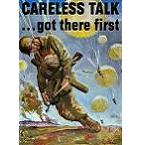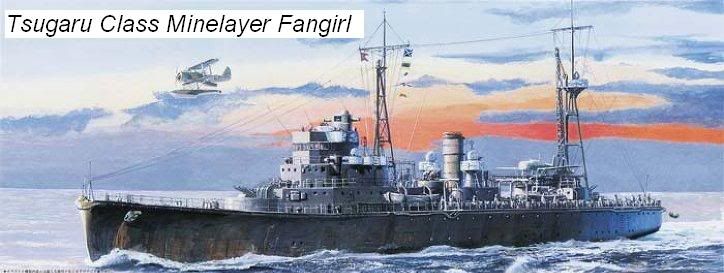Sardaukar
Posts: 9847
Joined: 11/28/2001
From: Finland/Israel
Status: offline

|
quote:
ORIGINAL: guctony
quote:
ORIGINAL: Sardaukar
quote:
ORIGINAL: guctony
That means that USA forced Japan to declare war. A gentle method to make USA enter war. In this respect it is clever. But I insist to ask what would happen If japan accepted to withdraw from China. Would it mean USA would send aid. or They would still force japan to declare war.
Both USA and Britain thought they could deter Japan from further aggression and make them withdraw from China. There were lot of cultural, political and military misunderstandments made by both sides. War between Allies & Japan was not inevitable, but one has to understand that it was not Allies who forced it per se. Seeds of the war were sown by Japan's aggression and war with China already during 30's. Avoiding war would have meant that Japanese military and their influence would not have been what they were, that rational minds would have prevailed and Japan would have withdrawn from China (could probably have been able to keep Manchuria). This would have ended US embargo and relations would have returned to not friendly, but at least chilly cordial level.
Saying that USA forced Japan to war is akin to say that UK & France were guilty of starting WW II by guaranteeing independence of Poland. Neither USA or other Allies were aggressors in these episodes, they just simply told the aggressor that enough is enough.
Problem in Pacific was that those in Japan having main influence had imperialistic ambitions about their neighbours, which run to crash course with other powers of region, necessarily not less imperialistic ones.
When I look at china ýn Witp AE. It seems it is an unnescesary efford to keep it. Its strategical resources are not enough, not near the coast it requires an enourmous efford to keep it. I wish Japan leadership had some nerve to back up. If they left the china interal conflict would be more benefficent to Japan. I think if we add some common sense to Japan leadership and if evacuation of China would lead to USA aid. There can be some solid ground for a 1942 december Japan Suprise attack. Which probably would mean an USA that did not enter the war.
I am not willing to take this questioning to another ground But when you say imperialistic ambitions; what other ambitions had USA, Dutch, France, Russia, Germany had at that time. Expansion in terms of economical dominance is still the name of the game.From my point of view there is no differance having Dutch or Japan sitting on DEI.
UK, France or Dutch were no less imperialistic, they had just gotten there first, even though world had changed a bit since. US was late-comer in game and started this mainly with 1898 Spanish-US war.
Evacuating China would have been a good move for Japan, since it was a quackmire for IJA. Giving up Manchuria was impossible for them, since it was seen as buffer for Soviet aggression and safeguard for Korean peninsula.
If Japan had done that and hoarded resources and oil, it would have been possible for them to open hostilities later in 1942. But there is big problem about military balance. US and to small extent UK would have been immensely more powerful militarily in 1942 than in 1941. Japanese estimate in autumn 1941 was that their balance with US in Pacific was 70%-100%. With massive US military buildup, they estimated it to drop to 60%-100% in 1942 and to 50%-100% in 1943. Last figure was unacceptable for Japanese military, since 60%-100% balance was seen as bare minimum for self-defence and 50% was seen as not being able to even defend themselves against possible US aggression.
Japanese also estimated that US was able to build up military 10x faster than Japan, whose economy had been geared for war since early 30's and didn't have any slack, so to speak.
So you can see where that is leading, Japan estimated that they had about 6 months "window of opportunity" in late 1941, before known US military (especially naval) buildup would have made offensive vs. Allies very difficult if not outright impossible to succeed. In reality, Japanese even underestimated US build-up capacity. They took the opportunity when they still saw they had chances and wished to secure defensive perimeter and cause enough casualties force US/Allies to negotiate in 1943. Didn't quite work that way. They were also counting Germany to win in Europe... So if we think Dec 1942 start, Japan would already know that Germans were getting badly defeated in Stalingrad...
Maybe summer 1942 start would be feasible, but extra time for US to build up their forces would make things very difficult for Japan. On the other hand, IJA would have lot more troops available, but then, shipping to support and land them just was not there either. Problem for Japan is that their military and military economy run on shoestring. They just could not afford any defeat, unlike Allies could.
While you may have your initial success, due to timing and surprise, the time will come when you too will have your losses, but there will be this great difference. You will not only be unable to make up your losses, but will grow weaker as time grows on, while on the other hand we will not only make up our losses but will grow stronger as time goes on. It is inevitable that we will crush you before we are through with you.
- Admiral Harold Stark, USN, Chief of Naval Operations, speaking to the Japanese ambassador before the war.
_____________________________
"To meaningless French Idealism, Liberty, Fraternity and Equality...we answer with German Realism, Infantry, Cavalry and Artillery" -Prince von Bülov, 1870-  |
 Printable Version
Printable Version
















 New Messages
New Messages No New Messages
No New Messages Hot Topic w/ New Messages
Hot Topic w/ New Messages Hot Topic w/o New Messages
Hot Topic w/o New Messages Locked w/ New Messages
Locked w/ New Messages Locked w/o New Messages
Locked w/o New Messages Post New Thread
Post New Thread